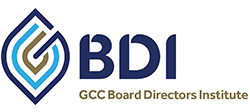 Dr. Abdullah Al Abdulqader has been chairman of Saudi Telecom Company (STC) since May 2015. When not running the Kingdom’s largest telecoms business, Dr. Al Abdulqader is also Head of the Advisory Committee of the Capital Market Authority and a member of the Quality Assurance Committee in the Organization for Certified Public Accountants.
Dr. Abdullah Al Abdulqader has been chairman of Saudi Telecom Company (STC) since May 2015. When not running the Kingdom’s largest telecoms business, Dr. Al Abdulqader is also Head of the Advisory Committee of the Capital Market Authority and a member of the Quality Assurance Committee in the Organization for Certified Public Accountants.
Dr. AlAbdulqader previously worked as a professor at King Fahd University of Petroleum and Minerals. The vastly experienced businessman holds a Bachelor and Master of Business Administration from King Fahd University of Petroleum and Minerals, and a PhD from the University of Colorado, USA.
Dr Al Abdulqader, these are major shifting times for Saudi Arabia, both politically and economically. What opportunities do you see for STC in these changing times?
We see tremendous opportunities as the government implements the key pillars of its Vision 2030 programme to diversify the economy and drive new businesses and industries across the kingdom.
One of the key pillars of Vision 2030 is the building of the digital infrastructure for the future, and STC will play a major role in building this. Whether it be the rollout of the high speed fibre broadband to homes across the country or the upgrading of our mobile network to 5G, STC has the unique capabilities to drive this transition to the digital economy at a very fast pace.
STC will also lead the development of the digital ecosystem of services and applications that sit on top of this infrastructure, whether that be in ecommerce for consumers or high-end cyber security and cloud services for government agencies and business enterprises.
As women are given more liberties in Saudi Arabia, including being able to drive, how will this affect your hiring strategies and board representation?
One of the key requirements in the transition to the digital economy is the development of human capital. Well-trained and talented people are what will drive our country ahead in this new era and we need more of them.
By making it easier for woman to work it will enable companies such as STC to employ many more talented woman at all levels of the organisation. Also, half of our customers are women and we need to design digital services and applications for them, so having a talented female workforce will be essential if we are to meet these customer needs. Since 2015, STC has been implementing an expanding programme for hiring women. I’m happy to say that women are proven to be great human resources assets not just at routine job positions but at higher levels in the STC organisation.
Will STC have a role to play in KSA’s upcoming ‘Neom’ city development?
STC will have a huge role to play in Neom. This will be a digital native city, designed from day one to incorporate the latest in digital infrastructure and services. We know that Neom will require thousands of mobile phone sites alone, as well as the supporting infrastructure such as fibre and cloud data centres. STC is uniquely positioned to deliver this infrastructure but more importantly STC will also deliver a lot of the digital media, financial, medical, educational, and government services that run on this infrastructure.
What are some of the measurements that can be used to measure board performance?
Professionally, I feel fortunate to work with talented and committed directors in STC. We are satisfied with the strategic and financial performance of STC.
We do conduct an annual internal assessment of our board. Last year we sought the help of the GCC BDI to do an external assessment. This has proven highly beneficial.
What factors contribute to a high performance board?
It is important to have a diversity of views in the Board with a mixture of industry experts and external experts that bring different views and talents in identifying issues.
Also, mutual respect amongst Board members is very important as this leads to very open and progressive discussions, which are essential for good performance.
It is also essential for the Board to focus on strategic issues as opposed to more transactional or operational issues.
How has GCC BDI supported STC?
One of the great benefits I have derived from GCC BDI is the network of great people that I have met and been able to talk about issues of board effectiveness. I have learnt a lot from these people – many of them have encountered very similar issues to those that I have. This has been extremely valuable for me personally and professionally. Many of our directors and top management have been engaging with GCC BDI. The board assessment exercise last year crowned the relationship between STC and BDI



COMMENTS ARE OFF THIS POST